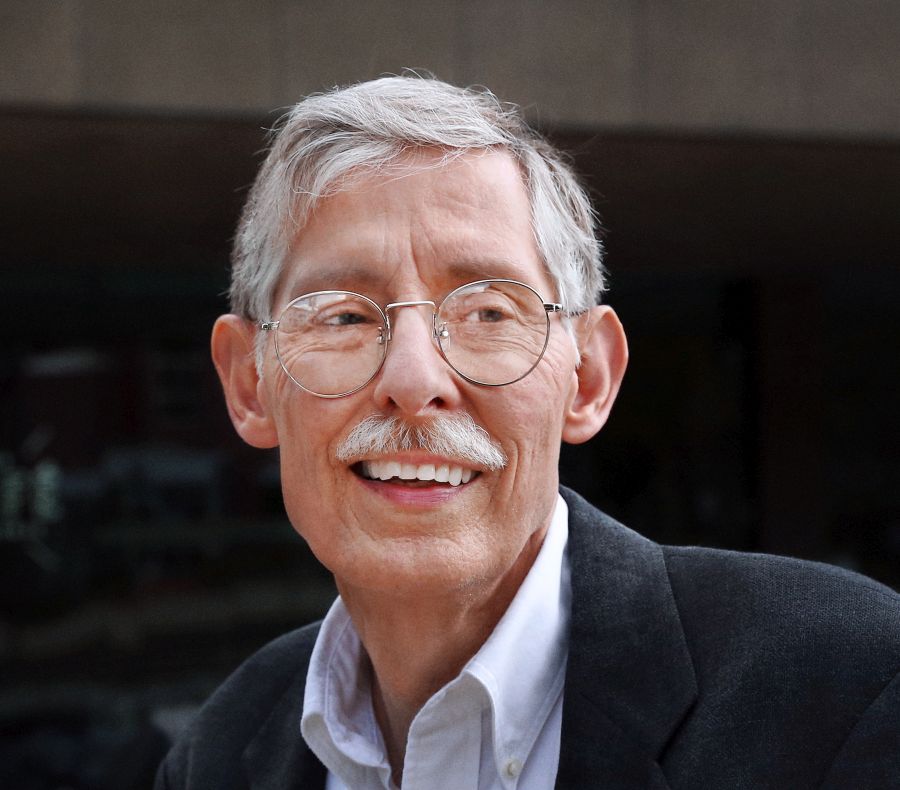For David Beckwith, 1950-2022
The week you died, the Russian tanks rolled into Ukraine
through gauzy snow like this. Your brothers joked that Putin
waited to invade till you were gone. Tonight, big flakes
fall past the grand, stone music hall and fill the folds
of Bach’s bronze coat. He broods beneath the globe lamps
on their marble pedestals, waiting, maybe, for the ghostly form
of some unfinished movement to appear. Across the street
in mist: a bicycle leaned against a streetlight, as if
a messenger had left it there. Bent-wheeled, painted gray
and garlanded with paper flowers – a ghost-bike
— marker for a woman struck there by a car.
It’s kids like her you taught to strategize and knock on doors
in Krakow, Budapest and Bratislava. You cross; you touch
the half-imagined shoulder of her shade: Do not be afraid.
That’s what the messengers all tell us. That’s what
you’d like to tell your wife, your daughter Sky.
Don’t fear. A whisper. And a prayer. The flakes
appear as if from nowhere. In the beginning
was the deed – that was your text, now fifteen years ago,
at your raucous, early-retirement event, forced
when doctors scanned your liver, read your fate:
Two years? Four? You’d told the crowd – street smart organizers
to the bone and blood – “We’re defined by actions, not
by speaking or intent.” You meant it — lived your life
capacious as a Russian novel, shambling bear-like as Pierre.
True, you never tied a bear to a policeman,
shoved them in the Neva, but when the FBI’s black car
churned up your commune’s gravel drive — to check
on “hippie types,” you brandished your chainsaw in the air
… and they slipped away. Middle aged, you sang your heart out
with a rag-tag choir, under a high, blue, barrel-vaulted ceiling,
painted with golden stars. No stars now, though. Mariupol’s
in rubble. Kyiv is under siege. In the beginning was the deed —
Faust, not Goethe you know: it’s not the doing only
but the “how.” And here come the flakes,
you take one on your tongue and laugh, despite it all.
You want to talk to Sky now: how you sang her lullabies;
read to her from “Little Bear;” heard her saying “wow!”
to greet the sticky little leaves that you and Tolstoy praised,
their fragile, green unfolding — almost imperceptible,
a movement come, impossibly, to mark the brutal winter’s end.
Do not be afraid – not something that you say,
it’s just the way you brush off the seat and clamber on,
wobbling at first – ungainly bear atop a circus bike.
You give a little wave, then weave into the night.
Photo by Madalena Veloso on Unsplash

